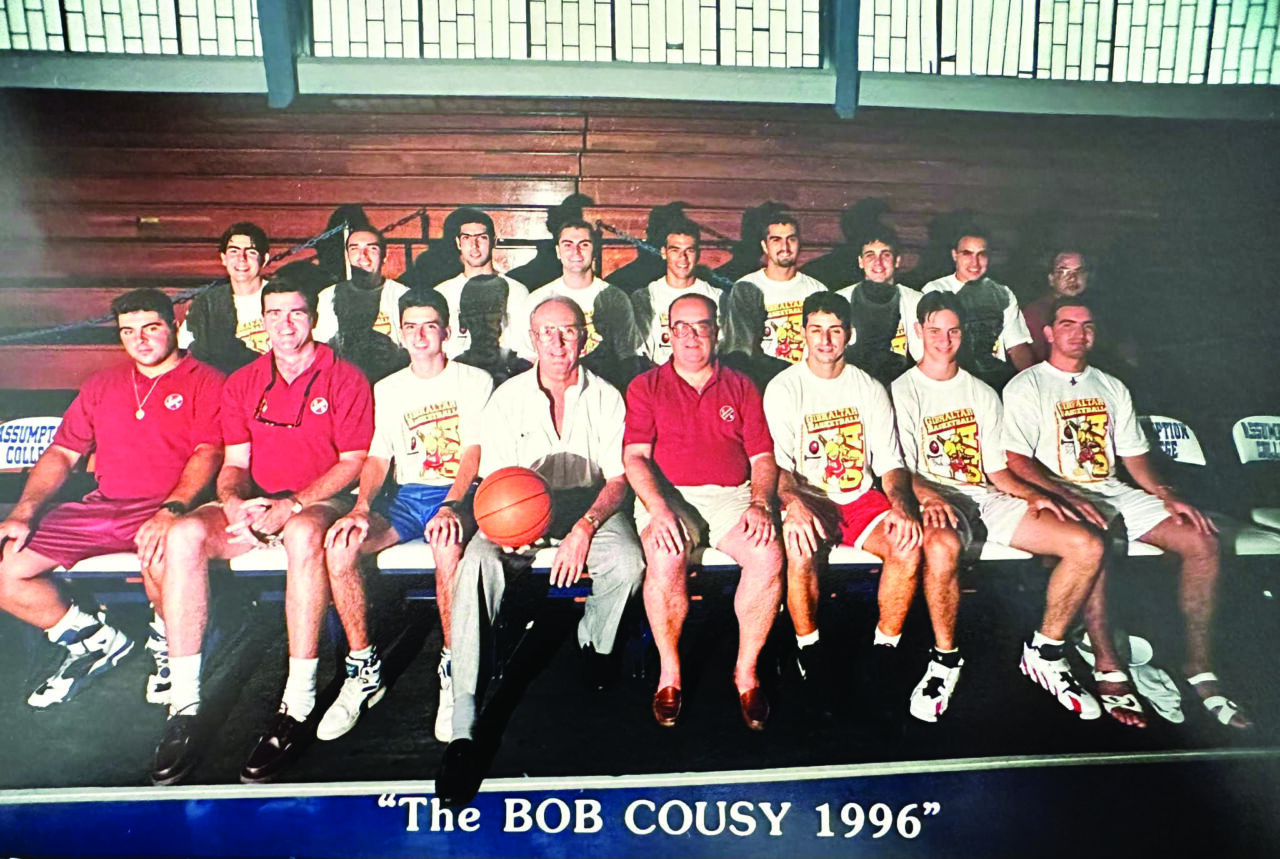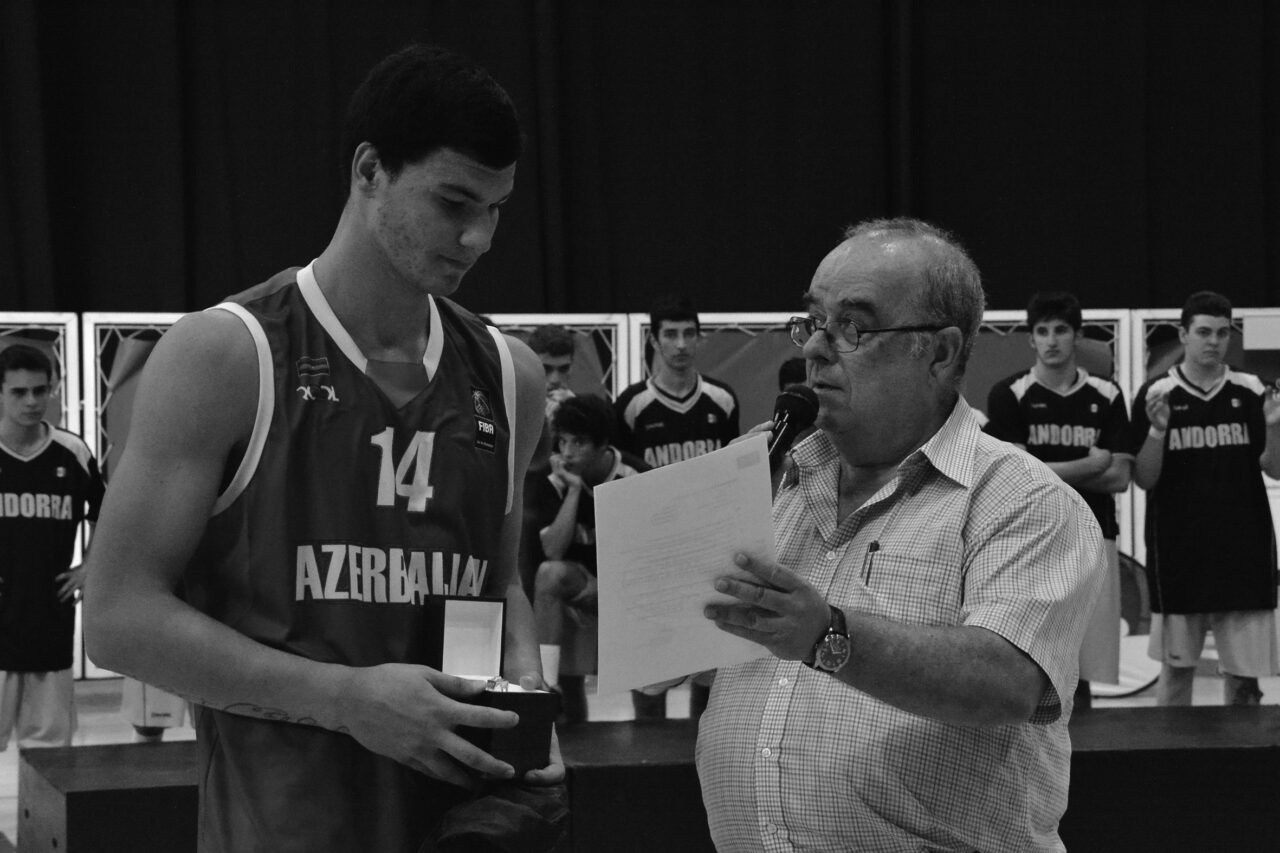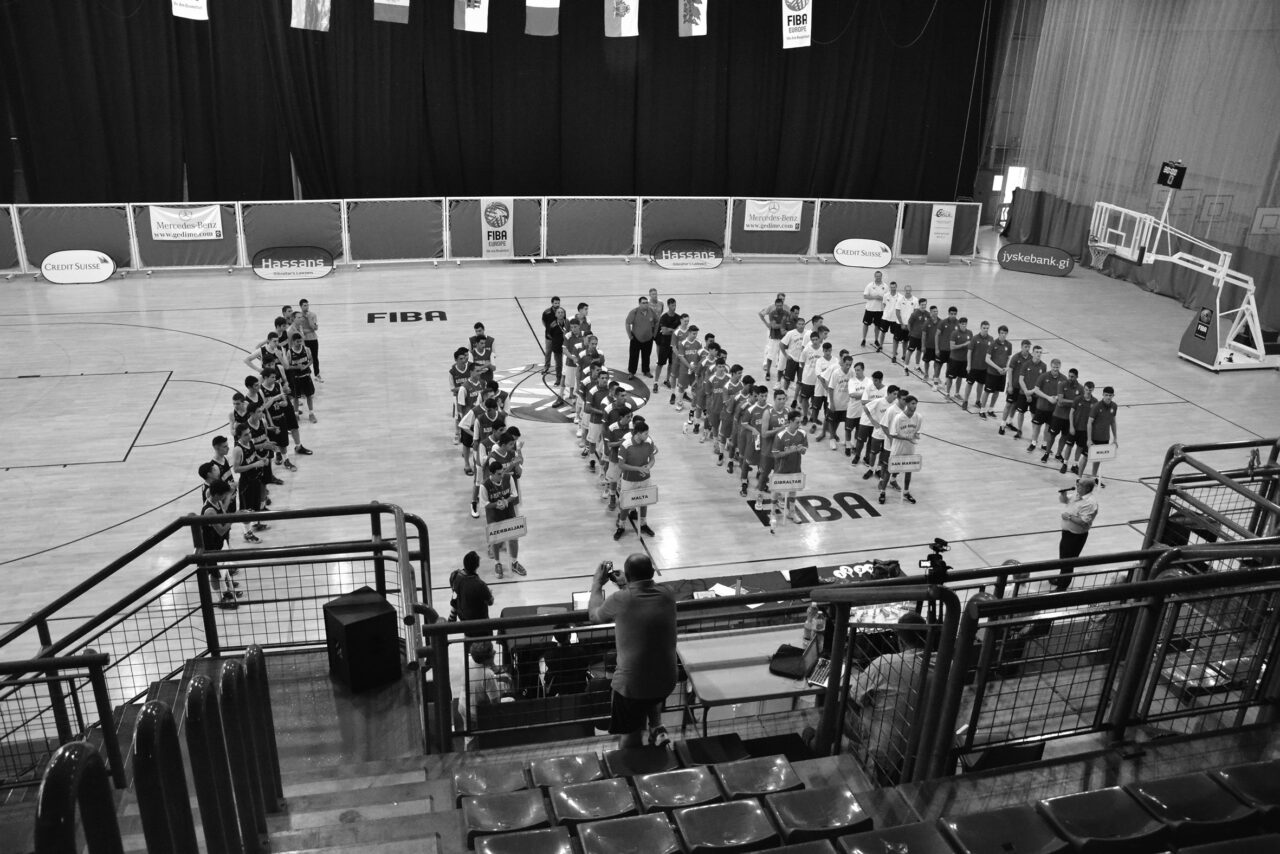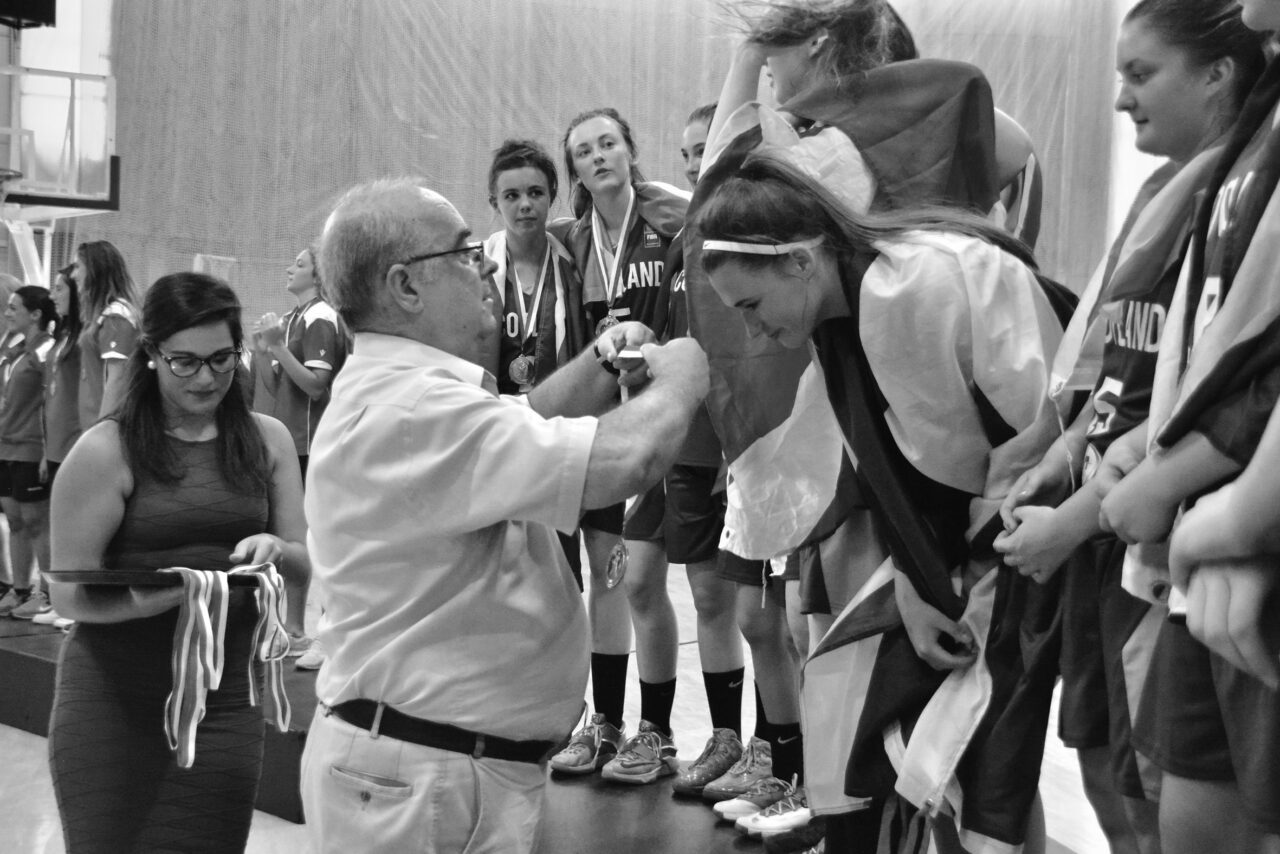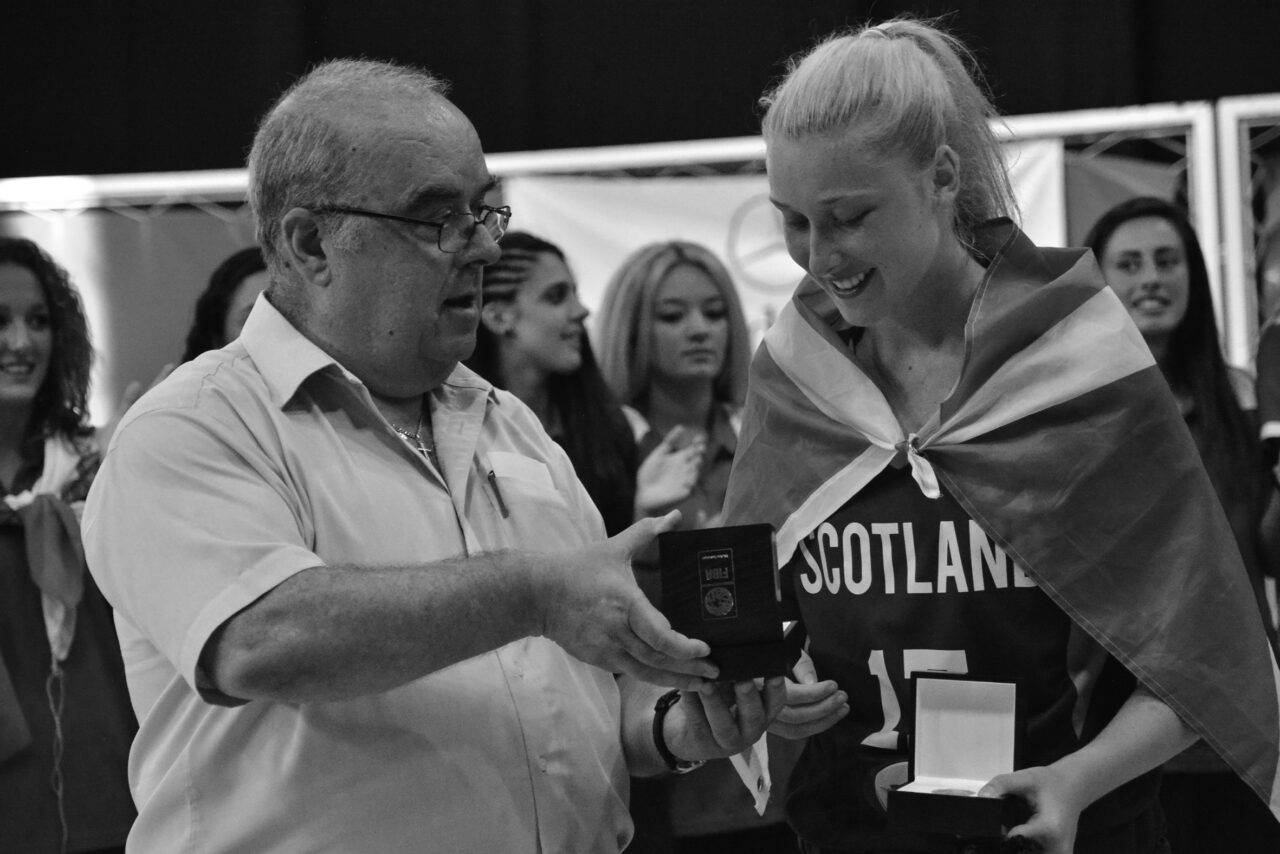Memory Lane - 60 years on
As the Gibraltar Amateur Basketball Association celebrates its 60th Anniversary we wanted to bring you a special feature celebrating its history and path through sport in Gibraltar. At the helm of basketball on this present day sits Mr John Gonçalves, a man who not only has been associated with the sport since its founding days, but who today also holds a role with FIBA Europa and has gained the respect of not just local basketball but international basketball, known to some as “Mr Basketball” himself. His contribution to the sport has not just been in its management and development, his longterm relations with the media has meant that he has been one of the biggest contributors to the media on the sport. Ensuring its continued exposure throughout many decades. Although not a person who has used this relationship to put forward his views or promote himself, for once and it what is probably the most appropriate moment, this newspaper’s sports team offered Mr Gonçalves to relate his own story on the sport which he has passionately followed since the founding days of the association. This is his story.
by John Gonçalves
Late winter of 1964….a new sporting phenomenon was awakening on the Rock.
TVE had begun showing Real Madrid taking on the might of the Soviet Union’s best clubs, not at football but at a little known sport played by 5 guys against 5, with regular substitutions. It was basketball, of course.
And at the south end of Main Street, the brand new John Mackintosh Hall had a gymnasium, although it was part of a school complex within the premises. The only other gyms in Gibraltar were the Garrison Gymnasium and the RAF Gymnasium in Devil’s Tower Camp, both out of bounds to civilians.
Basketball had been played here, reportedly, since the war, having been imported by Canadian sappers (the inventor, Dr James Naismith, was a Canadian), but it remained the domain of the military, although the Police was allowed to participate in their competitions.
Three civilian teams, Springboks (mostly Gibraltar Regiment reservists), plus boys’ teams Shadows and Blue Stars, had been in existence for a couple of years, albeit without any organised competition, and I remember playing occasionally in the Grammar School top patio since 1958.
But now, two men, Stanley Flower, just back from College in England, and Joe Lara, decided it was high time to start an Association which would organise basketball for the growing number of people interested in playing.
Negotiations with the Mac Hall Director, Lt Col Charles Hunt, went well and they called a meeting on 6th May 1964 - exactly 60 years ago today - and the Gibraltar Amateur Basketball Association - GABBA - was founded there and then.
I was at that meeting, aged 17, representing the Grammar School, one of 34 teams which were eventually to register with the fledgling Association. I became a member of GABBA shortly after and am honoured and privileged to be able to boast that I am the only person who has been a member uninterruptedly ever since.
I think that qualifies me to take you on a trip down memory lane.
The new committee stood up to the challenge of coping with an unexpected large number of enthusiastic teams very well. A programme of non-competitive matches and supervised training went on for a few months before competitions started in August. The first League Champions were Police (Seniors) and Blue Stars (Juniors).
The following season saw the start of the now regular Autumn/Spring schedule, with Shadows winning the first of 5 consecutive League titles.
It also saw the start of Women’s competitions, with 8 teams participating.
By then it was attracting many spectators and this became a problem which, eventually, resulted in being stopped from using the Mac Hall. One of the conditions of use was that spectators were not allowed. It was impossible to uphold this and the kind caretaker, Mr Grech, frequently turned a blind eye. Letters threatening eviction were received from time to time, but matters came to a head early in 1967 when, I am ashamed to say, I was the cause of a near riot at the end of the League decider, which Blue Stars, which I coached, lost by 1 point and my behaviour provoked a court invasion.
That was it! GABBA were unceremoniously evicted, and I was suspended for 6 months!
Luckily, the Education Department came to our help and made Hargraves Court available to us. Basket units were constructed in the Dockyard, court markings were painted, and basketball was back on track in a couple of weeks.
By that time, our founders had left the Committee. Pepe Yome had replaced Joe Lara as Chairman and he in turn left in 1968, with Alfredo Duo taking the Chair until 1983, with a year out in 1975/76, when it was held by John Norton.
In 1969, the Rotary Club made an offer we couldn’t refuse, making available a plot of land at Landport, big enough to have a full-size court and three-tier stands along the north perimeter of the court. With the guidance of professional friends, volunteer manpower from within the membership, and heavy duty assistance from the Royal Engineers, Landport Court became our home.
As I continue down memory lane, my mind recalls those who have left us, some a long time ago, others not so long ago, and a few very recently……..
Joe Lara, Pepe Yome, Jaime Felice, Manolo Asquez, ‘Taffy’ Smith, Tito Figueras, Willie Cavilla, Johnnie Gonzalez, Alfredo Duo, Andrew Arias, ‘Hurie’ Bautista, Neville Dalmedo, Pedro Grima, Sydney Hewitt, Stanley Olivero, Danny Gabay, Francis Napoli, Paco Bear, Cecil Sant, John Shephard, Manolo Guerrero, Wilfred Francis, Richie Buchanan, Darren McMahon, Gigi Pizarro, Carlos Marquez, Mari Montegriffo, Julio Teuma, John Hernandez, Stephen Grant, my beloved brother Daniel Gonçalves, Kenneth Saez and Peter McKay.
May they rest in peace.
Back to Landport and the 1970’s. On the domestic front, Blue Stars finally broke the stranglehold Shadows had on the League title in 1971, clinching the title on a Sunday morning at the Garrison Gym, for that was where matches were played, courtesy of the Army, when it rained. The following year saw the tightest ever League competition, with a quadruple tie involving the two above mentioned, plus Dogma and Gambols, the last named finally winning after a 3-day round-robin competition before massive crowds at Landport.
We were now starting to get involved in matches with Moroccan clubs, both here and there and I will never forget the final of a tournament at Landport against FUS Rabat. GABBA started well but a large number of members of our Moroccan community, watching the match on the ramparts on the other side of Landport Ditch, were seemingly not happy with the referees and started throwing stones onto the court. This caused the interruption of the match as Police intervened, before the match could restart.
The Victoria Stadium Sports Hall opened in 1974 and, although it was a much better facility, many, including myself, missed the ‘ambiente’ of Landport, particularly the Sunday lunchtime tussles.
It was in the late 70’s that a totally unexpected encounter was to change the life of GABBA, and mine in particular.
I was coach of the Gibraltar men’s selection playing in the first Commonwealth Basketball Championship in August 1978 in UK. This was our first ever official tournament. After narrow defeats to Wales and Northern Ireland, and a heavy loss to Canada, then ranked 4th in the world, all in Cardiff, we moved to Coventry for the second phase, where we lost to Scotland and England.
It was there that, queuing up for lunch, with my assistant coach, the late Cecil Sant, I suddenly noticed that the man ahead of us in the queue was none other than Dr R. William Jones, Secretary General Emeritus and founder of FIBA in 1932. He turned around, greeted me and asked me where I came from. On being told “from Gibraltar” he acknowledged the fact that we were playing in the Championship and asked why we weren’t members of FIBA. I replied that I thought we couldn’t but he said that we could and urged us to get a big country, preferably from outside Europe to sponsor our application.
Canada became our godfather and the rest is history, although it wasn’t until 1 July 1986 when the World Congress in Barcelona ratified the decision of the Central Board in December 1985 accepting our full membership. By then, Dr Jones had passed away.
In the voting, Spain abstained and the other 172 member nations present voted in favour. Probably the proudest day of my basketball life.
In the time from application to ratification, Brian Delaney became GABBA’s fifth Chairman for a year in 1983, shortly after the National team had returned from New Zealand after a stay of 18 days during which we played in the 2nd Commonwealth Championships in Auckland, Hamilton, Dunedin and Invercargill against Hong Kong (twice), Canada, England, Malaysia and Fiji, whom we beat. A great experience, and the longest and furthest trip ever.
A year later, in 1984, I was elected Chairman, unopposed. The title was changed to President shortly after and I am now in my 40th year in the post. The Secretary General of FIBA, Andreas Zagklis, announced at an official dinner held here on the occasion of the meeting of the Board of FIBA Europe in March, that I was the longest serving President of any of FIBA’s 212 member federations. This fills me with immense pride as I have succeeded in not only putting Gibraltar on the map but have been able to bring many benefits to GABBA.
We have hosted 13 international competitions at Senior and youth levels, for both sexes; a General Assembly and 2 Board Meetings; we have had 3 Commissioners: myself, Joe Hernandez and Edwin Yeats, now a Technical Delegate; 6 international Referees: Joe Hernandez, Albert Flores, Francis Santos, Shane Bassett, Ian Felice and James Dominique (active); and have participated in numerous FIBA competitions, starting with the first Promotion Cup for Men in Malta in December 1988. That will remain very high in my memory as, in our last match, we came back from 15 down at half-time to beat Wales with a buzzer-beating 3-pointer scored by Edwin Yeats.
It was our first-ever FIBA win, on my 42nd birthday.
Neither will I ever forget our win over San Marino in Cardiff in 1990, crafted by the late, great Kenneth Saez, whom I entrusted with 8 consecutive free-shots after the opposition lost the plot and aired their protests beyond the limit. We were only 5 ahead at the time, but Ken sank the 8 and the hitherto cocky Sammarinese folded.
A year before that, the Women’s selection played in the first Promotion Cup for Women in Luxembourg. Two years later, in 1991, we hosted our first FIBA competition, and the Women recorded their first win, beating Wales, emulating the Men in 1988.
There are plenty of other tales on the memory lane, among them, organising the very entertaining Amstel Tournaments, where our top four placed teams in the League each drafted an American professional player from the English League, recruited by our friend Bob Hope, and played a round-robin, attracting large crowds, followed by the top local player joining the pros and playing teams like CAI Zaragoza, Caja de Ronda, Bayer Leverkusen, etc; snapping up an offer to have the Harlem Globetrotters at 24 hours notice and cramming 1,200 in the old Victoria Hall; winning various FIBA Medals, including 2 Golds, all by our youth teams; getting our Senior, u18, u16 and u14 teams, both sexes, in the Cadiz League from 2004 to 2012, and winning at least one title in every category; and, at a personal level, being Commissioner at 2 EuroBaskets, in Lithuania and Slovenia; being a member of the Board of FIBA Europe (2003/14 and 2019/date), Vice President (2010/14 and 2019/23), and founder and President of the Small Countries Commission (2003/14 and 2023/date).
The memory lane has reached the present time and my greatest satisfactions are looking back and remembering all that has been achieved on the one hand, and looking forward to a bright future, seeing the amount of young and very young boys and girls who are taking up basketball and developing so brilliantly under the care of their coaches, particularly and thanks to the support of Sam Buxton and his Algeciras club, UDEA Damex, who has made it possible for our youngsters to return to the Cadiz League after 12 years.
I cannot thank God enough for having given me all these memories………and there are so many more.
